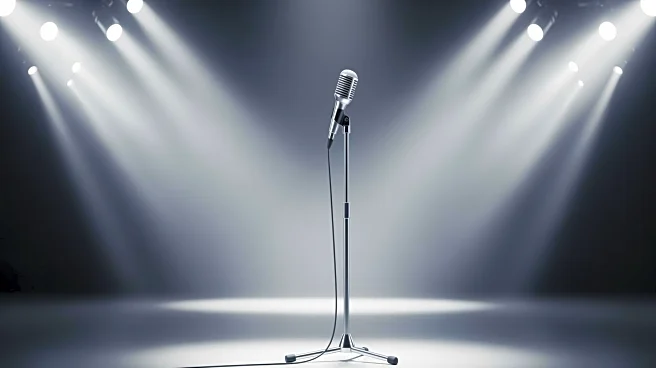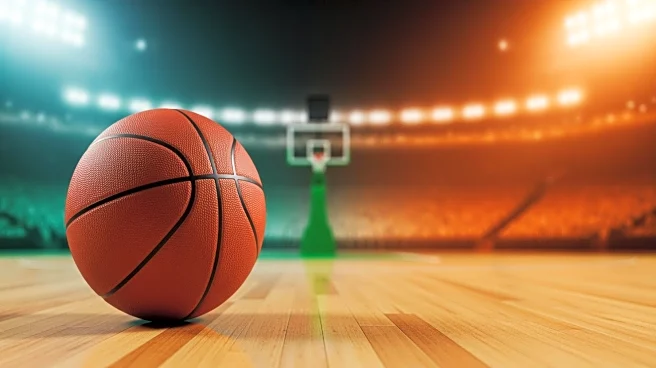What's Happening?
NFL Commissioner Roger Goodell has reaffirmed the decision to feature Bad Bunny in the upcoming Super Bowl halftime show, despite criticism from President Trump and others. Goodell emphasized the careful consideration behind the choice, acknowledging
the inevitable backlash that accompanies such high-profile selections. Bad Bunny, a Puerto Rican artist known for his Spanish-language performances, has faced criticism but remains committed to delivering an exciting show. The Super Bowl LX is scheduled for February 8, 2026, in Santa Clara, California.
Why It's Important?
The decision to feature Bad Bunny highlights the NFL's efforts to embrace diversity and appeal to a global audience. This move could enhance the league's cultural relevance and attract viewers from diverse backgrounds, potentially increasing international viewership. However, it also underscores the challenges of balancing artistic choices with public opinion, especially in a politically charged environment. The NFL's stance may influence future entertainment decisions and set a precedent for inclusivity in major sporting events.
What's Next?
As the Super Bowl approaches, the NFL will likely continue to address public and political reactions to its entertainment choices. The league may implement strategies to mitigate criticism while promoting the cultural significance of the halftime show. Stakeholders, including sponsors and media partners, will be keenly observing the public's response and its impact on the event's success.
Beyond the Headlines
This situation highlights the intersection of sports, politics, and cultural representation. The NFL's decision reflects broader societal debates about inclusivity and representation in mainstream media. It may prompt discussions about the role of sports in promoting cultural diversity and the responsibilities of organizations in navigating political landscapes.















